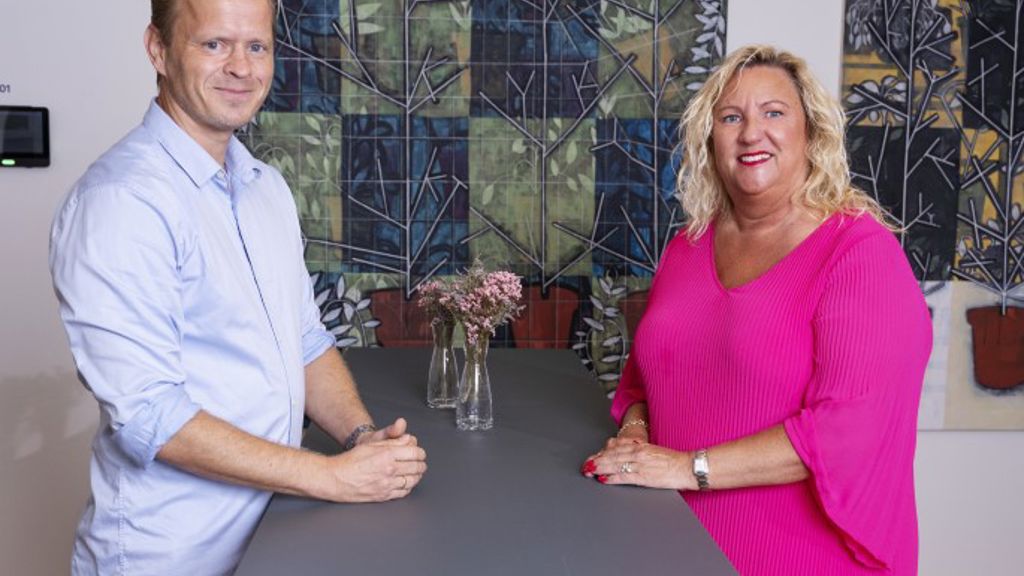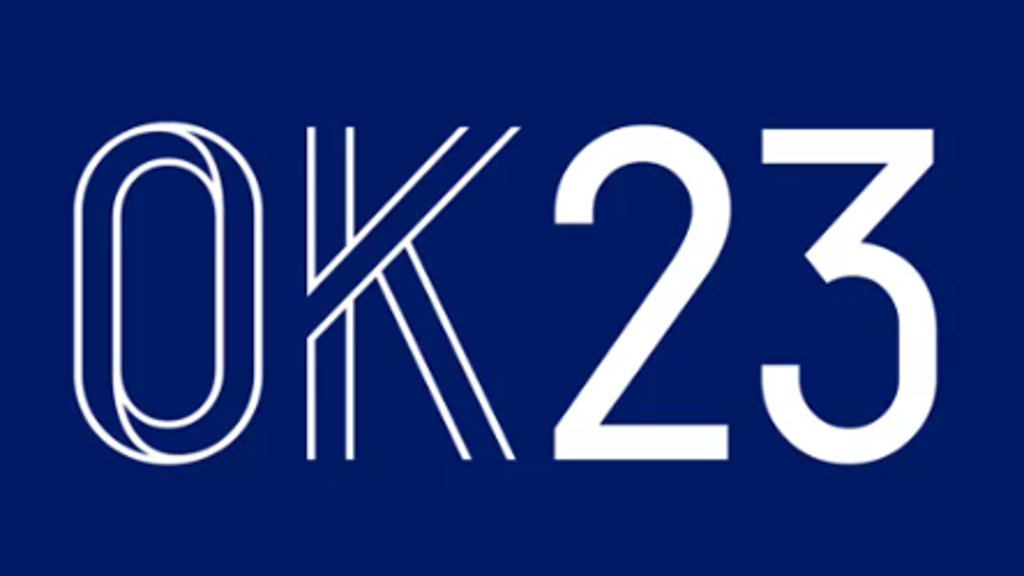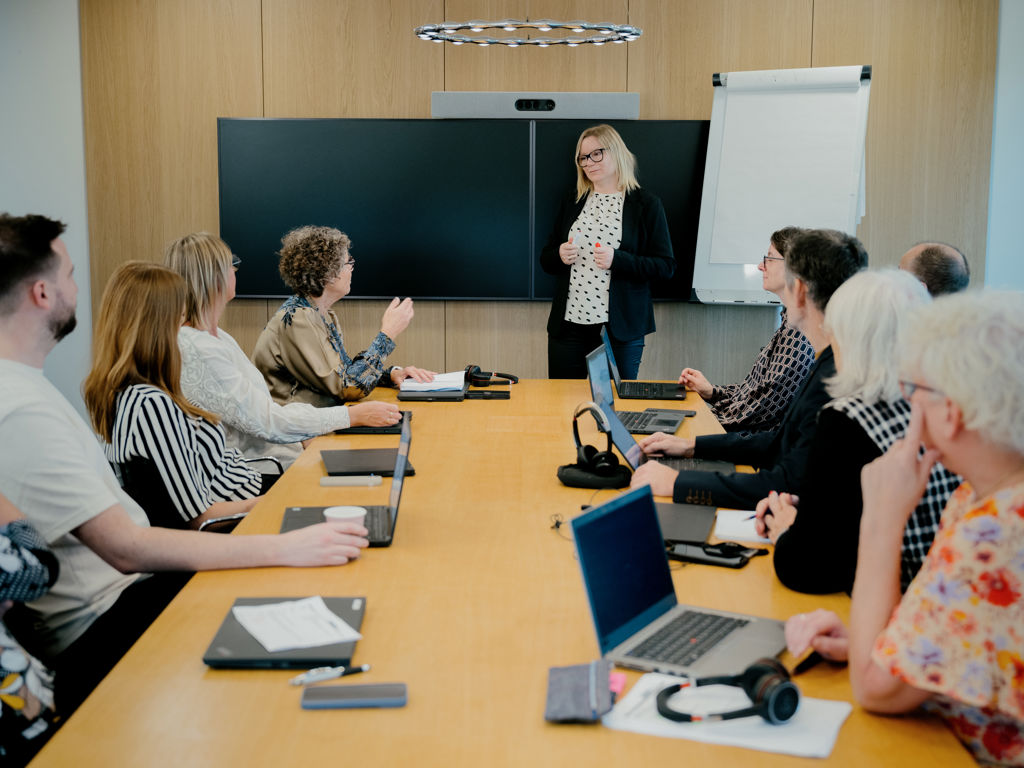Involvement, influence and transparency
Finansforbundet in Nordea has throughout the latest couple of months put spotlight on flexibility – a difficult topic, as our needs and wishes are diverse. Close before the summer holidays, the members confirmed a new company agreement and already now the work on the next agreement has started. In addition, the board is fighting to achieve better conditions for those employed on a contract basis
”Our mantra as a new presidency is ’involvement, influence and transparency’ – which we and the rest of the board aim to defend in our work. The three words have a common denominator … trust. Without trust, we cannot strengthen the community and ensure that the work is motivated by our members’ dreams, wishes and needs. Concretely, we reached out to the senior union representatives in the autumn. Together we prioritised three topics to deeply dig in to,” says president in Finansforbundet in Nordea, Kasper Skovgaard Pedersen.
The first topic prioritised is flexibility – and the board has set out on it from many various angles – including bringing it up for discussion through an article.
“We received a lot of comments. Quite many hadn’t had the feeling of having been asked for their opinion on the topic until then. We can see exactly the same in the amount of responds in our common Nordic survey on hybrid working in Nordea – it surely touched something,” says Kasper.

Later this year, the next two subjects will be brought up: Job mobility and Union of the future.
Flexibility – control and having the key to your own business
Defining flexibility precisely is not possible. What feels flexible for one person is very far from that for another – some need fixed boundaries which would be found limiting by others who feel sure to be able to administrate time and tasks themselves.
”Flexibility is a lot more than counting the amount of days in the office. What you do, where, how and when – all are aspects in YOUR flexibility. In addition, we all need to look further than our noses and see the whole: How can we make things working exactly here in our unit – which regards do we need to show and how can we all be happy in our way to organise the daily work?,” Mette asks, emphasising that employees in a team do trust each other and are inclusive.
”Depending on what is going on in our lives, needs can be diverse – and they all count the same. I really hope that we can make room for each other and let go of being envious – who knows; next time you might be the one in need for tolerance from your colleagues,” she says. Her sincere wish is that every unit will be provided with ’the key to your own business’ enabling the team to organise the flexibility model making most sense to them.
The hybrid work model with – in average – three days in the office and two days remotely has created a good deal of frustrations among the members in several parts of the bank. Especially because some teams feel that controlling the numbers of people being in the office has overshadowed the discussion on how the model could fit exactly into the single team.
Hours of online meetings in the office
Employees in cross national teams have in particular been uncomprehending to the demand of coming into the office, even though they are in online meetings with people outside the building almost all day.
”To many, it seems pointless using time and CO2 to commute even though they have no possibility to do anything together with the colleagues in the office. They might even have no colleagues in the country they work in,” says Mette – who on the other hand see a challenge in employees not showing up.
”Union in Nordea’s big common survey shows that only few respondents see specific benefits in wellbeing while working in the office. And exactly wellbeing, learning and developing the culture are strong arguments from Nordea in the wish for the employees to come back into the premises. Actually, I feel a bit sad that so few honestly want to prioritise professional and social time together with colleagues, and I think we will lose something of great value if we don’t meet each other. This issue is clearly one of those results where we, as well as Nordea, have an interest in diving deeper into,” says Mette.
Company agreement with salary increase to everyone
Another topic where members and union representatives had a possibility to influence is the collective agreements.
Just before the summer holidays in 2023 we were happy that as much as 92.2 per cent of the votes submitted said YES to the new collective company agreement. The result included a general salary increase of 4.5 per cent as of 1 July 2023 – and nothing in the collective salary pool.

”We chose this solution because the high inflation had hit everyone – and we wanted to ensure a high increase to the full range of employees, covered by the agreement,” tells Mette, adding that in 2024, we will come back to the well-known model with a local salary pool to be distributed according to the principles in Nordea Løn (Nordea Salary model). And in general, the board find the results in the agreement satisfactory.
Fighting to help those employed on a contract basis
”But of course we still have outstanding matters to fight for. One of them is the conditions for those employed on a contract basis who don’t automatically get a share in the benefits provided to those covered by the collective agreement. Over time, close to 20 per cent of the entire group of employees in Denmark are employed on a contract basis – and many of them are our members. They have legitimate expectations on getting included when it comes to the results, and we will keep on fighting for them – in Nordea as well as via the central negotiators in Finansforbundet,” she determines.
Under way once again
In the beginning of 2024, members have responded to Finansforbundet’s survey on wishes for the collective agreement that is planned to be negotiated in 2025.
”We haven’t yet seen the results of the survey but they will of course create a basis for the preparations to the central collective agreement in the sector as well as to our company agreement in Nordea. Later this spring, we will meet the union representatives to put more words to the members’ requests – and after that we will use the fall to structure and make plans,” says Kasper, who in 2025 will be in the heart of the central negotiations, as he has entered the central board of Finansforbundet.
”It will be completely new to me – even though I have been close to the process for many years, my stomach is tickling a bit, now having ‘my own money on the line’, using evenings and even nights obtaining the best possible conditions for all members.”
Part 2 of 3
Prior to the Annual General Meeting on 19 April you can read three articles, providing you with an idea of what has happened since we met in the 2023 version, virtually and at Crowne Plaza. Read part 1 – ‘Dialogue and cooperation – with or without being edgy’ here. This is the second in the row.





